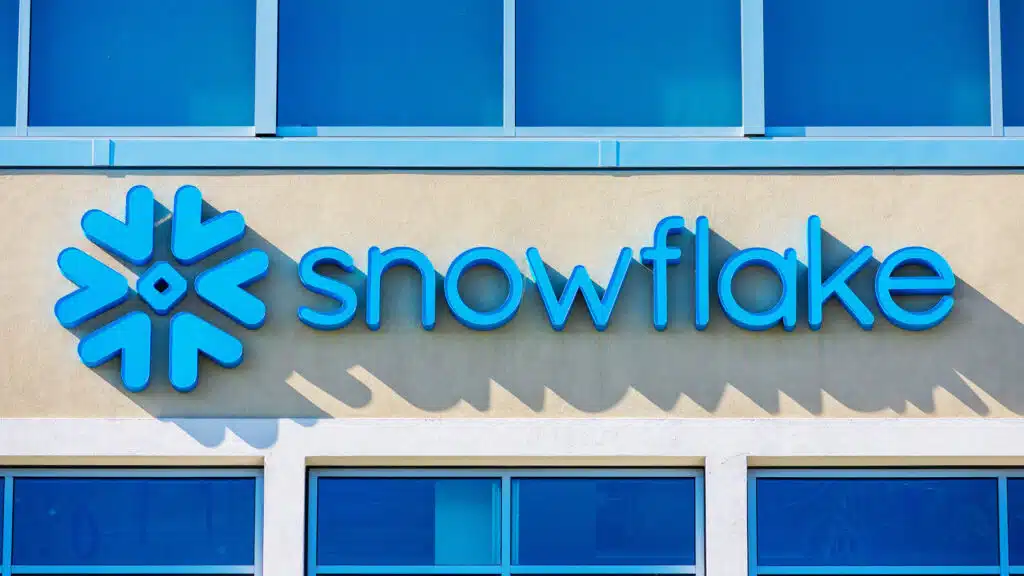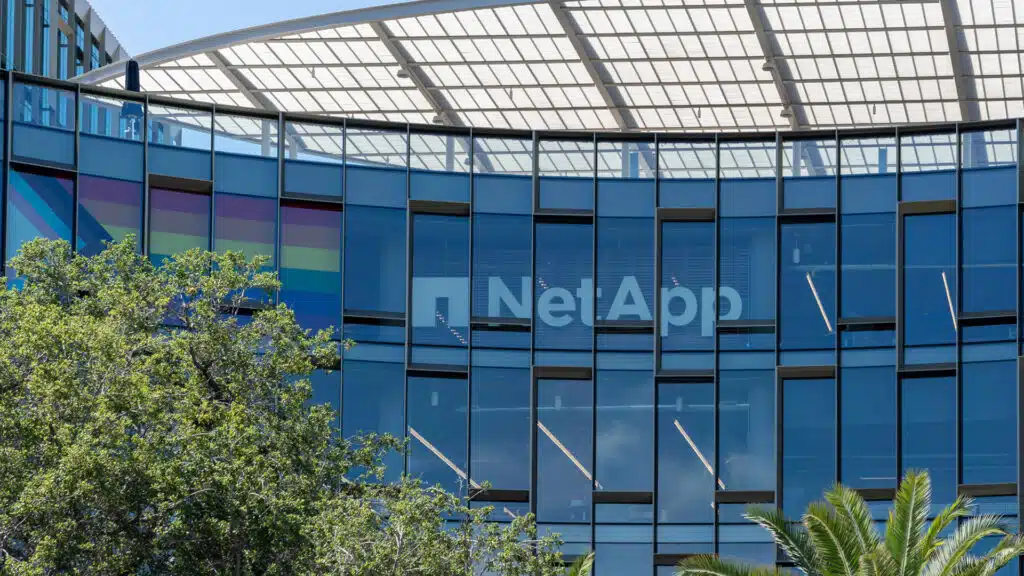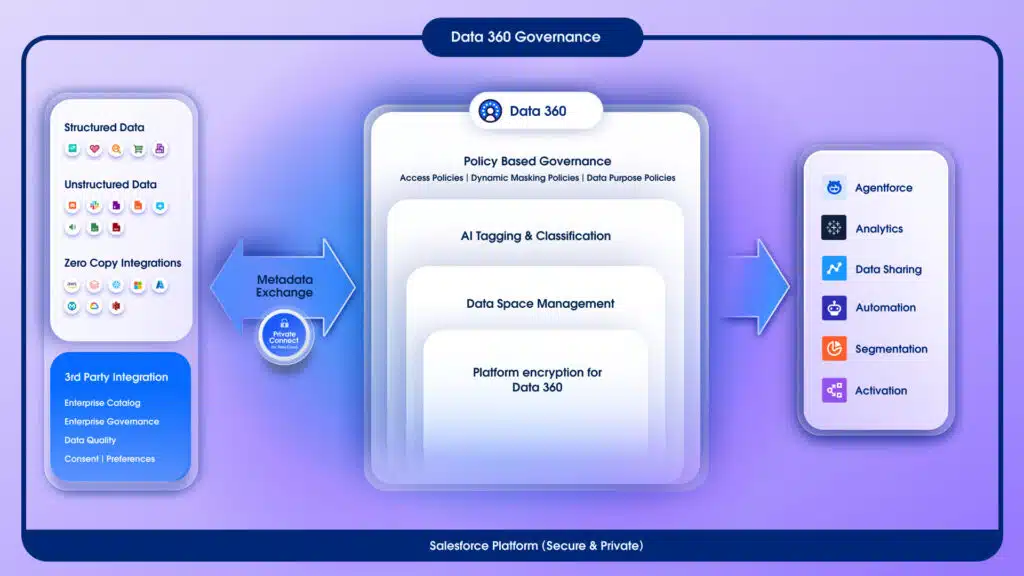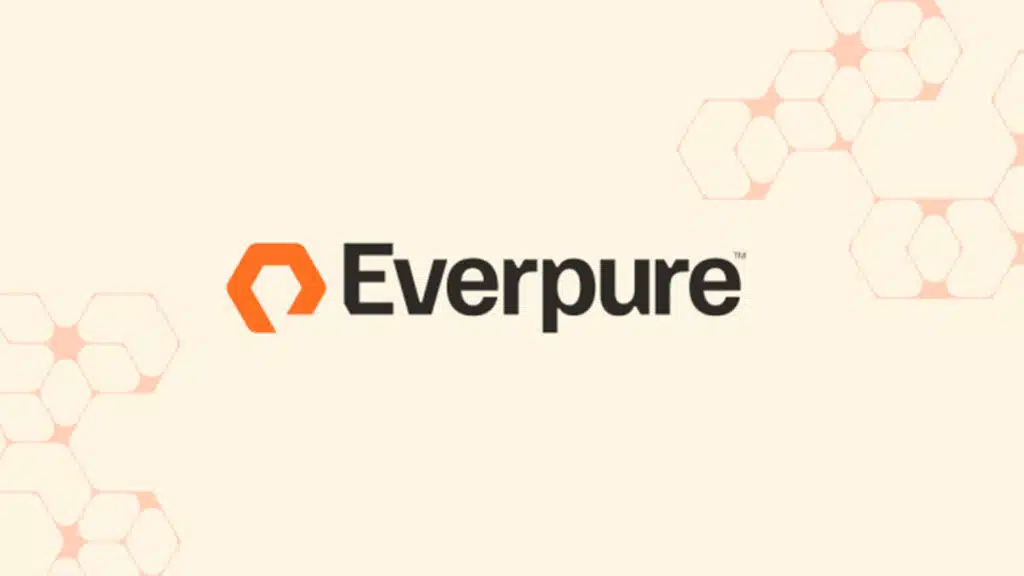Forget the hype – the real AI revolution is happening in small and medium businesses! 💪
The Futurum Group’s Tiffani Bova is joined by Dell Technologies‘ Erik Day, Senior Vice President, Small & Medium Business, for a conversation on the roadblocks businesses are currently faced with adopting AI and how Dell is making AI accessible and actionable for SMBs. This exchange underscores how SMBs are navigating their AI journeys, the unique value Dell offers in this space, and a preview of what’s to come at this year’s Dell Technologies World.
Key takeaways include:
🔹SMBs and the AI Opportunity: While AI is dominating conversations, SMBs are grappling with how to effectively leverage it. Dell is focused on providing solutions that address their specific needs and help them drive tangible business value.
🔹Overcoming the Complexity Barrier: A key challenge for SMBs is the perceived complexity of AI deployment. Dell is working to simplify the process, offering accessible solutions and guidance to help them get started.
🔹Verticalized Solutions for Real-World Impact: Dell is partnering to deliver AI solutions tailored to specific verticals like healthcare and education, demonstrating the technology’s power to solve real-world problems.
🔹Empowering SMBs with the Right Tools and Expertise: Dell is committed to providing SMBs with the resources, support, and partner ecosystem they need to successfully implement AI and achieve their business goals.
Find out more about Dell’s AI Solutions and what’s to come at Dell Technologies World.
Watch the full video at Six Five Media, and be sure to subscribe to our YouTube channel, so you never miss an episode.
Or listen to the audio here:
Disclaimer: Six Five Media Webcast is for information and entertainment purposes only. Over the course of this webcast, we may talk about companies that are publicly traded, and we may even reference that fact and their equity share price, but please do not take anything that we say as a recommendation about what you should do with your investment dollars. We are not investment advisors, and we ask that you do not treat us as such.
Transcript:
Tiffani Bova: Hi everybody. I’m Tiffany Bova, Chief Strategy and Research Officer at Futurum and I am thrilled to be joined today by Erik Day from Dell Technologies. Erik, welcome.
Erik Day: Oh, Tiffany, thank you so much for having me. It’s a pleasure to be here.
Tiffani Bova: Well, I know you are all about SMBs, I love them too. But everybody is talking about AI and I just would. They are maybe starts with an A, ends with an I. That’s the conversation everywhere. It’s kind of like everything everywhere, all the time. Right. But you know, I, I, what I do hear from SMBs is like it is a hot topic, but how should I approach it? And, and you know, I thought you would be a fantastic person to get that insight from, especially when it comes to SMBs. So what, what are you hearing and what, what are you thinking, especially from a Dell perspective?
Erik Day: Yeah, I mean to be really honest, I think it’s a little bit all over the place depending on where you’re at in your journey as a company. We are seeing everywhere. I would say the biggest area of interest that we’re seeing right now in SMB is a lot on the PC refresh that we’re going through right now. There’s a lot of companies that are needing to refresh their client products because Windows clearly is moving away from Windows 10 and going into Windows 11 and kind of this new generation of products right now is completely focused on the AI PC running with Microsoft Copilot, also having much higher processing technology, whether that’s from intel or AMD or Qualcomm and ultimately allowing people to experience AI as much on the edge as they possibly can. Whether that’s using open source AI tools like your ChatGPT or your proposal complexity or even your Copilot and then ultimately trying to, you know, institute some sort of potential coding on, on kind of internal large language models as, as much as they possibly can. So I would probably say a majority of SMBs are putting their toe in the water to, to drive that use case of using AI.
The second one we’re seeing a lot, especially in large like scaling or large growing SMBs is a lot of conversations around data management. We can talk about this later, but you’ll hear a lot about the Dell AI factory and what we’re doing with Nvidia and some other really important ecosystem partners around helping our enterprise customers get ready for AI and doing their own models inside their own company. In order to do that, your data has to be right, your data management has to have the right structure. You, you have to make sure that you’ve got the right balance between on prem or in a colocation versus in the public cloud to make sure that you’re ultimately being efficient with your costs. And ultimately we’re there with our SMB customers having those data management conversations to ensure that they’re doing everything to optimize their data to be ready to actually talk about what use cases they want to use AI for. And then the third, I would say kind of where we’re talking a lot about AI is ultimately almost at a vertical level around use cases. Like how do I use AI in this certain vertical that I’m driving? And many of these startups especially are getting right into the fold. They’re wanting to build large language models, they want to do a lot of coding, they ultimately want to do AI as a service in order to be able to actually get into the AI game and being a big partner to larger companies. And that also takes a lot of help from Adele Technologies to ensure that they have the right products, the right softwares and the right services to institute that, especially as they’re growing into some of this new AI infrastructure. And funny enough, your old stomping around Salesforce, I talked to a lot of ex Salesforce executives that are getting into the AI game in the startup community to really change the CRM game, which I think is going to be really interesting too.
Tiffani Bova: Again, like, there’s no shortage of conversations around AI. And I think you just outlined three really great sort of ideas and efforts and activities that Dell is doing. And I think what SMB specifically, they’re looking for something unique, right? Because there’s just a lot of noise, you know, how do they find their way through all that? Everyone’s saying, and I know that Dell is doing some unique things with AI, but I think the way to bring that home is kind of real customer examples. Is there anything you can share that really can help an SMB? Say, oh, I see myself or I hear myself in that, in that example.
Erik Day: Absolutely. There’s a few use cases that I can tell you about. The one that Dell has done a really good job telling the story, and I really love it, is we worked with the city of Amarillo and in the city of Amarillo you have a population where a majority of the residents don’t even speak or English is not their first language. And in order for them to be able to get the services and the support they need, whether that’s at a state or local institution, whether it’s at a doctor’s office, they’ve actually We’ve helped build an AI capability for them to be able to talk in the language of their choice in order to be able to get the services they need in a much, much quicker way, which I think is really a really cool thing that we’ve been able to do with the city of Amarillo. And we’ve got some really good content on the web, if you wanted to look that up, that we put a little bit of a commercial on YouTube. The other use case that I really like is we have just recently deployed a whole bunch of new AI PCs to a private school in Colorado where they’re going to implement AI PCs to help teachers build their lessons plans quicker, to be able to be more consistent in the way that they deliver workloads to the kids so that there’s not an unfair advantage or a disadvantage to certain kids based on the workload they’re getting. They’re also going to ultimately help teachers grade faster, be able to read reports quicker, and completely use AI to help within the entire teaching module of that school, which I think is super exciting on how they’re going to actually use. Use AI to help better and more efficiently teach our children.
Tiffani Bova: Well, you know, I’m a firm believer in, in. In human and technology. Not human alone, not technology alone, right? The sort of, the blending of the two in a way that’s just so seamless. You, you don’t notice that if you will, handoff between the two and use cases, especially in education and sort of, you know, allowing this sort of, you know, democratization of these kinds of technologies like AI and putting AI into a notebook means that it’s not quite so scary to a lot of people, you know, because it’s, it’s like, I don’t know what that means. Even though we all know, because we live and breathe technology all day long, that we use AI underneath the hood, but yet people may not know that that’s actually the technology delivering what it is they’re asking, or they’re doing a search, right? Or they’re looking to fill in something. So, you know, if people are listening, like, wow, you know, those are great use cases. And now I understand sort of what Dell’s doing in a couple, in a couple work environments as well as consumer environments. You know, how should people get started? Because I think it’s the first step that’s the hardest. Right? The journey is long and every day we learn something new about AI and we see new use cases and we’re constantly pushing, you know, and where and how we can get value from it. But what’s the first step you would say to an SMB? You know, if they’re like, okay, I might be scared or a little uncomfortable, but I want to, I want to lean into it.
Erik Day: Yeah, I mean, I think there’s a few steps. I think the first and the easiest one, which we’ve talked about a couple of times and you just brought it up, is make sure that you ultimately understand how to use open source in your environment as safely as you possibly can. Because I think open source AI gets that first kind of glimpse in order to be able to use it. So figure out use cases with your own environment where your employees can be using either copilot OR proposal or ChatGPT or even XAI in ways where they can actually get the information they need much, much faster. And just make sure that as a organization you put your own controls over it, how you want people to use it so that you’re using it in a good, good way. Because it really does help a lot. I mean, we use it on our sales teams all the time in order to find company information, in order to find the right contacts, in order to be able to simply be able to understand a little bit better about our competitive products out in the market, etc. So there’s a lot of really great use cases that SMBs can start using open source AI in order to be able to get used to it. The next one, which I’ve also mentioned, is understand where your company is as inefficient or less inefficient than you’d like it to be. And can you ultimately think about deploying some type of large language model automation or even some type of overlay machine learning in order to make that process more efficient?
What I hear a lot in SMBs as well is around reporting. A lot of manual reporting, a lot of excel, a lot of people touching the reporting. Reporting is a really good first step for small and medium businesses to actually think about deployment, deploying AI, their own models in order to be able to make reporting more efficient so you don’t have your team members trying to pull their own reports, asking for more reports. It’s a great way to standardize, simplify and automate in a small and medium business and ultimately start playing with your own AI within your, your own business. And then I would say the third one is again, and I alluded to this before as well, is around your customer data. I would think that would be the next best action as far as deploying AI in a small medium business. Is our customers are so important to us. Our CRM is so important to us. How cool would it be to be able to build your own automation and or AI into your customer data in order to be able to actually get to the next step you should take with your customer or the right materials to send to your customer or being able to understand what their order history was in a much faster way so that you can figure out what that next proposal to your customer could be. I think this is the steps that small and medium business could take because it becomes the kind of the most important things to them.
Tiffani Bova: Well, all that is like so much richness and goodness to unpack. But I’d be remiss if I didn’t also ask you because you’re just so in tune with what SMBs are looking for today and also into the future, both from a Dell lens, but also because you’ve been doing it for a long time. Right? Is, what do you think is. Is holding SMBs back, right, from all those examples you just gave? Right? Is it data? Is it reporting? Is it CRM? Is it. You know what, what do you think it is besides kind of what I said? Maybe they’re just afraid of it, they don’t understand it. Besides that, you know, what do you think is really, you know, holding? You know, we could go back and say this. This feels to me a lot like when we were saying, you know, should try the cloud, right? Let’s move to the cloud. What is that going to look like? And here we are again with a very disruptive, in a good way, opportunity with AI once again. It’s kind of like this early adopter and then people are waiting and then they’re going to wait for the next wave and then everyone starts to come along for the journey. But I’d love to see that accelerate. So I’d love to hear from you. What’s the hesitation?
Erik Day: I think it’s twofold. I’m going to give an unselfish answer and a selfish answer. Okay, My, my unselfish answer is, I think it is quite complex. I mean, even to understand our own Del AI factory. It took me hours and hours and hours of teaching my own brain how this all works, right? The amount of technology that one would have to buy. Understanding the GPU power that you need, whether you need cooling, not cooling, how much power you need, how big does the data center need to be? Do I do it on prem? Do I do it off prem? Do I do in a colocation, Do I use a cloud service provider I mean, the questions become to the point of overwhelming. And let’s remember we in small and medium businesses, we don’t have large IT teams. You don’t necessarily overnight have this brain trust power inside your SMB that is going to be able to walk you through how to build an AI factory or what does AI look for you. Right. And you can’t go to enough seminars to better understand it. Right. Which leads me. So I think that’s my unselfish answer. It’s. It’s not that. It’s that it’s, it’s overwhelming or it’s like the cloud, like I can’t understand it. It’s. I don’t think we’re giving that SMBs have time in order to figure it out, in order to understand what the next steps are. Which leads me to my selfish answer. There are companies out there like Dell Technologies that have the resources to supplement where you don’t. And I think it’s really important that. And I’m going to say this in the nicest way possible because I love SMBs.
But SMBs are built off of entrepreneurs. Entrepreneurs are very boisterous about their idea. They’re very confident about their idea. They’re very confident about their capabilities. Until it comes to something as complex as artificial intelligence, you have to be vulnerable enough to ask questions, to ask for help, to work with the right companies, to work with the right channel partners. There are plenty of people like Dell Technologies that have the expertise and the people around them like an entire channel network. Partners, I mean, we have ecosystem partners like Red Hat and Nutanix and Hugging Face and, you name it, that work with us in our factories to build our own proprietary solution or our own perfect solution just for your company. But it takes conversation and it takes talking about money. And how do we help you get the right investors to get the money that you need in order to be able to do that. And so it’s making sure that you’re asking the right questions, the right people is I think the other thing that SMBs sometimes don’t necessarily necessarily do that in AI, they’re going to have to start doing. They’re going to have to be vulnerable to ask those questions to the right people that know what they’re doing so that they don’t get behind.
Tiffani Bova: Yeah, And I think, I think you’re spot on. And I think the thing I’d love to dig a little bit more into is that is really the network, because many SMBs, as you said, they started as entrepreneurs. Many, if you’re really in the small micro business don’t have internal IT resources. There isn’t someone internally that can go and walk around the corner and ask them for help. And so they’re relying on a reseller that might be reselling them. Dell, do they have AI capabilities? They might be working with a small software vendor. Do they have partners that can help them understand? Are there communities? Is it a small business network? Is it something where you can go and really look for those opportunities? And even all the training and learning that Dell puts out for SMBs, I mean there’s lots of places that you can go to get content but, but you have to be willing to wanna go out and learn, otherwise it’s just gonna pass you by. And I’m a firm believer that the businesses that win in the future will be those that use technology better than their competition. And this is a huge part of that.
Erik Day: Tiffany, I’m so glad you said that because I think it’s been a decade and I’ve been to a lot of entrepreneur events, right, for every type of small business in there. I have been a huge proponent of minority owned small businesses for a long time. At one time, women, I think still women are opening up, you know, new startups twice as fast as men are. And every time I went to this conference, these conferences and spoke at these conferences over the last decade, everyone wanted to talk about money, money, capital, capital, capital, capital. And I would sit on that stage and I would kind of cross my arms like this and listen to all the requests to talk to the investment bankers and how do I get more money coming up to me going hey, hey Dell, will Dell fund me financially for my small business? And I was like no, no, that’s not, we’re in the business of doing. But if you’re not careful and you don’t turn this conversation from money into technology, you’re going to be behind.
And I think we’re at that point is that for so long small and medium businesses put capital in front of their needs to understand technology, that we’re getting to that tipping point where if they don’t start re changing their priorities and understanding that there are probably more people that can help them with the capital part versus the technology part. I think they’re going to have to switch gears because even if they raise the money, if they don’t have the right support system around them or when they get the money, the first thing they should vest in is an IT team to get them up to speed on the technology. I think these are the Conversations that small and medium businesses take need to have. Right. Because I will tell you, while the IT teams teams are small today, having more qualified, better IT teams that know how to pick those right partners, pick those right resellers, pick those right value added resellers, picking the right ISVs, whatever it might be, is going to be more important in the next two years than it’s ever been in the life cycle of these companies.
Tiffani Bova: Well said, well said. Well, I’m going to pivot a little bit because I know we’ve got Dell Technology World coming up, but last year the AI factor factory with Nvidia was launched and, and what can you tell us about what’s been accomplished since that announcement? I know you mentioned it briefly at the beginning of our conversation, the factory, but sort of what’s, what’s happened since Dell World last year?
Erik Day: Yeah, I mean, a few things. So our partnership with Nvidia keeps getting stronger and stronger and stronger because Nvidia continues to innovate, innovate and innovate. You know, we were just a GC GTC not too long ago, which is Nvidia’s, you know, yearly conference. And once again, I think Jensen and his team at Nvidia just continued to brag and brag about the relationship with Dell Technologies because we seem to be the one company at Dell Technologies that’s keeping up with the GPU innovation. Right. As these companies and as these enterprises move more and more into building their own AI models, thinking about agenc, thinking about the processing power and how to be able to cool and power those data centers are becoming more and more important. And we are doing everything possible to stay ahead of that curve in order to keep up with that higher processing power that’s going to be needed to make these AI models work as quick and efficient as possible. And so I think that’s what people are going to be looking forward to at Dell Technologies World is what is that next innovation. And also so that’s kind of how our infrastructure piece of the AI factory is keeping up, making sure that we can continue to engage in these kind of data center innovations. I think the modern data center is cool again, is kind of what we heard from before, like you know, 10 years ago is the cloud is cloud. Oh companies like Dell, you know, with this like old school dinosaur data centers are now going to be now like the infrastructure and data centers are cool again. Right.
And it’s being fueled by this GPU technology that’s ultimately taking us into this golden age of AI. And I think it’s going to be really, really interesting on how the Dell plus the Nvidia story is keeping up with each other to continue to innovate, to make it more accessible to more and more companies. Which is why we’re going to have the largest SMB space, the largest SMB attendance ever at Dell Technologies World, because we’re finally bringing some of this content that’s going to be really relevant to them on top of it. So that is what I think the biggest piece of the AI factory is. But the other one is our ecosystem partners continues to grow. Right. You cannot do AI without ecosystem partners and companies that already have kind of those plug and play large language models. So in cases like SMB where you don’t necessarily have all of the IT coverage that you need, there are a lot of plug and play models that we’re actually partnering with in the AI factory so that the software and the hardware stack come together so that you can actually plug and play with some of these data AI models in order to be able to make your companies more efficient.
Tiffani Bova: Well, you just sort of teased this as we wrap this up, that you’re going to have one of the biggest footprints at this year’s Dell Technology World. It’s just around the corner and it’s one of the biggest moments annually for your customers and partners are the one or two highlights that we can look forward to this year. Erik, for SMB.
Erik Day: Well, and I’m, I, I, I feel her staring at me across the room. Our marketing leader is, is in the room with me and, and she probably wouldn’t want me to, to, to tease this, but I’m going to, but our cto, John Reese, is going to stop by the SMB hive this year. He is probably one of the most brilliant educators and, and gurus on the AI industry that there is. And for him to stop by for an hour or so to talk to our SMB customers I think is going to be a huge, huge treat. And we’re really excited about that. And I think it’s going to be just a really, a great meeting place for SMBs to get SMB content. I think at a lot of some of these bigger shows like Dell Technologies World, it is catered to the enterprise, it is catered to our larger partners. A lot of it is around enterprise AI. So we’re taking that message that people are going to hear in these keynote addresses and we’re going to bring it down to the SMB sector to be able to really get them to understand how it can work for them. It’s going to take some of these conversations that we’ve been having, Tiffany, and bring them to real life.
Tiffani Bova: Well, I’m super excited. I’m going to be there. I can’t wait. I hope everybody that’s watching and listening is going to join as well. But thank you so much, Erik Day, for joining us today in this Six Five Media webcast unpacking SMB, AI adoption with Dell Technologies. It’s been a pleasure getting to know you in this webinar as well. Learn everything that Dell is doing around AI for the SMB. So thank you so much for joining us today, Erik.
Erik Day: Thanks, Tiffany, for having me. It was such a pleasure. I look forward to seeing you in Vegas.
Author Information
Tiffani Bova is Chief Strategy and Research Officer at The Futurum Group.
Ranked for the last six years in the Top 50 Business Thinkers in the world by Thinkers50, Tiffani Bova is a thought leader who Forbes says “reshapes our perception of growth.”
As both a practitioner and academic she offers a unique perspective and has helped lead the tech industry through several evolutions over her nearly 30-year career as Salesforce’s former Growth and Innovation Evangelist, and previously as a Distinguished Analyst and Research Fellow at Gartner and a sales, marketing and customer service executive for start-ups and Fortune 500 companies. She is the author of two Wall Street Journal bestsellers: GrowthIQ and The Experience Mindset.












